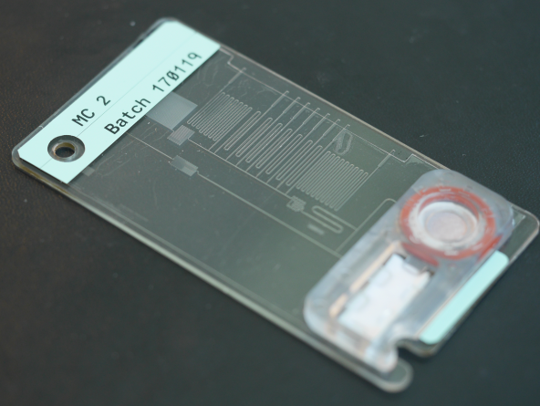21/01 Time to Scale Up!
Hello
Hope you all had a relaxing holiday! With fully charged batteries we are excited to start 2021 and here it goes… our first newsletter!
In 2019, we completed the R&D of our novel point-of-care diagnostic platform. In collaboration with the Canadian Space Agency (CSA) and Honeywell Aerospace, we commissioned our first product at the International Space Station. Our chips were successfully tested by astronaut David Saint-Jacques and we proudly made Canada the first country to perform rapid point-of-care blood tests in space!
During the rest of 2019 and the summer of 2020, we went through the Creative Destructive Lab (Health Stream), in Toronto and attended NEXT Founders Canada. This experience in the Canadian life science innovation ecosystem helped us to find our product-market fit. After interviewing more than 50+ physicians, nurses, and experts in the field, we narrowed our focus to a unique and practical application for our technology. We fell in love with a seemingly easy but extremely important problem, antimicrobial resistance(AMR). To combat AMR and manage antibiotics misuse, we want to build a diagnostic tool to discriminate between bacterial and viral respiratory infections using finger-prick blood within 15 mins!
In summary, 2020 has brought us many challenges, from the disruption of our supply chain to losing access to McGill University labs. We used our superpower of passion and perseverance and we are still in the game as a stronger startup.
In short
We are in the final stages of completing phase I of the AMR project in collaboration with Health Canada, delivering our initial prototype by Jan 2021
We have continued working with the CSA and Honeywell to supply chips for upcoming missions
We moved out of McGill University to a new lab space in Mile-End, Montreal
We welcomed 3 new biotech talents to the team. We are proud of our diversity, with over 50% women and minorities at Sensoreal.
Current Challenges / Goals
Design small-scale clinical study with patient samples from the biobank and in collaboration with the Jewish General Hospital
Prepare for larger clinical studies with our clinical partners
Secure funding for our next round of product developments
We are looking for
Health practitioners who we can work closely with to better customize our platform for their needs
Clinical researchers to design clinical studies and collaborate on grants
Learn more about venture capital funding opportunities, we aim to raise our seed round by the end of summer 2021
Accelerators and incubator who can help us in our fundraising efforts
While we are a microfluidics company, as you could see in the pictures below, we also pay special attention to macrofluidics. We keep our liquor cabinet full and we are ready to celebrate the next milestone! For the months to come, please stay safe! I will be in touch again with regular updates in 2021.
Thank you!
Pooya
Why AMR?!
As the symptoms of bacterial and viral infections are almost indistinguishable, physicians often over-prescribe antibiotics (upto 50%, CDC). This has resulted in not only $1.8 billion in drug waste annually but also caused a “global crisis,” with estimates that up to 10 million people will die every year by the year 2050 solely due to the spread of AMR [WHO]. We are at risk of losing antibiotic effectiveness, which is the backbone of modern medicine. We want to help physicians to better guide antibiotic therapy in multiple folds; rule out bacterial infections, measure disease severity, optimal duration for antibiotics therapy and when to start/stop the antibiotics use.
In collaboration with Health Canada, we have been customizing our space platform to differentiate between bacterial and viral respiratory infections. By listening to the, and using novel machine learning techniques, we have shown that we can achieve over 90% sensitivity and specificity when detecting bacterial infections from clinical data. We aim to have our prototype by the end of Jan 2021 and we are looking forward to performing more clinical validation studies in 2021 and 2022.





